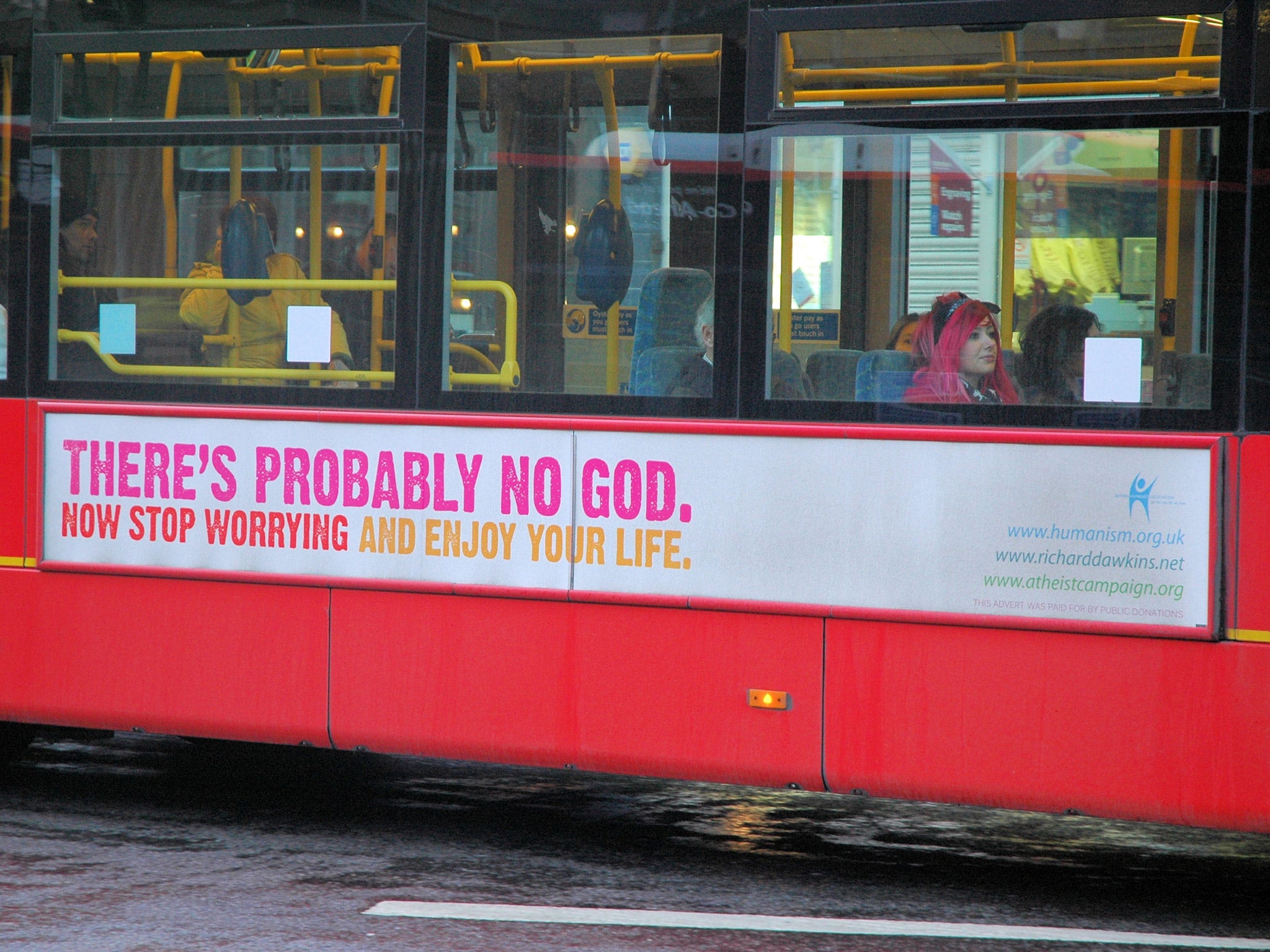Anti-atheist distrust ‘deeply and culturally ingrained’, study finds
Findings come despite fact 13 per cent of Britain’s population consider themselves atheist

Your support helps us to tell the story
From reproductive rights to climate change to Big Tech, The Independent is on the ground when the story is developing. Whether it's investigating the financials of Elon Musk's pro-Trump PAC or producing our latest documentary, 'The A Word', which shines a light on the American women fighting for reproductive rights, we know how important it is to parse out the facts from the messaging.
At such a critical moment in US history, we need reporters on the ground. Your donation allows us to keep sending journalists to speak to both sides of the story.
The Independent is trusted by Americans across the entire political spectrum. And unlike many other quality news outlets, we choose not to lock Americans out of our reporting and analysis with paywalls. We believe quality journalism should be available to everyone, paid for by those who can afford it.
Your support makes all the difference.People's distrust of atheists is “deeply and culturally ingrained”, with even many atheists having an instinctual distrust of each other, according to a new study.
A report published in the UK’s International Journal for The Psychology of Religion found there to be widespread “prejudice” against atheists, despite the fact 13 per cent of Britain’s population place themselves in that category.
The research, carried out by the psychology department at Nottingham Trent University, concludes: “Anti-atheist prejudice is not confined either to dominantly religious countries or to religious individuals but rather appears to be a robust judgment about atheists.”
Professor Leah Giddings and Thomas Dunn led the study with 100 online participants from the United Kingdom, 70 of whom were women and whose average age was 21.
A total of 43 per cent of the contributors were atheist, 33 per cent were Christian and the remainder belonged to other faiths.
The researchers presented the participants with a story about a man who reversed car into a van one day and didn’t leave his insurance details.
Later on, when he found a wallet, he removed the money from it for himself – and respondents thought it more likely the man was atheist.
The university said the findings "suggest anti-atheist distrust is deeply and culturally ingrained regardless of an individual's group membership”.
They added: "Looking to the future, it is also important to explore how these perceptions and attitudes toward atheists manifest behaviourally, whether people act on these prejudices and in what contexts. It is only once the nature and extent of the issue is better understood that we can take measures to address it."
A study by the University of Cambridge last month discovered that, contrary to popular belief, vast swathes of the ancient world did not believe in Gods.
Join our commenting forum
Join thought-provoking conversations, follow other Independent readers and see their replies
Comments